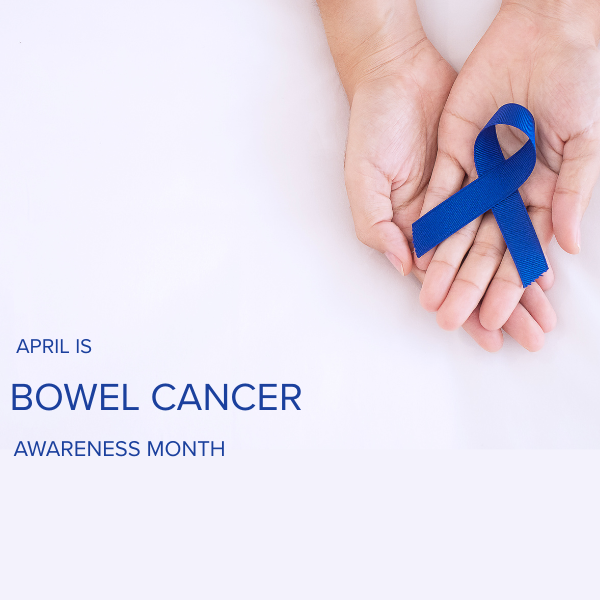Martha’s Rule
Pancreatic Cancer Misdiagnosis Compensation Claims Solicitors.
As with most forms of cancer, any delay in receiving the correct diagnosis can potentially lead to the cancer spreading beyond the pancreas, making it more difficult to treat effectively.
Being diagnosed with pancreatic cancer can be life changing for you and your family, even more so if you discover that your diagnosis could have been made sooner, were it not for the negligence of a medical professional.
The symptoms of pancreatic cancer often don’t present themselves until the cancer is more advanced, and they can be very similar to other conditions which are less serious, making pancreatic cancer quite difficult to diagnose. However, your GP or specialist should always carry out the necessary tests to rule out cancer, and any delay in doing so could have devastating consequences.
If your pancreatic cancer has been misdiagnosed or mistreated, causing it to spread beyond your pancreas to other parts of your body, thus reducing your chance of making a full recovery, we can help you to seek the justice and compensation you deserve.
Here at Lanyon Bowdler we have helped many clients in your situation to pursue legal action against both NHS and private hospitals, and we are here to help you, too.
Can I make a Pancreatic Cancer Negligence Claim?
To have a valid claim for compensation for Pancreatic Cancer Negligence, you must prove that the medical professional who owed you a duty of care has acted negligently. Our specialists at Lanyon Bowdler can help you collect evidence and create a strong case, so you can get compensated for your pain and suffering and get the outcome you deserve from such a traumatic experience.
If you have experienced the negative effects of a pancreatic cancer misdiagnosis, or have sadly lost a loved one due to medical negligence, we can help you to seek justice and compensation. Please get in touch with our medical negligence solicitors to find out how we can help you.
Your Pancreatic Cancer questions answered
The pancreas sits in the upper abdomen, behind the stomach, and forms an integral part of the digestive system. It is made up of two parts: the exocrine pancreas, which produces digestive juices, and the endocrine pancreas that produces hormones to aid digestion, such as insulin.
Cancer can develop in either part of the pancreas, and each type of pancreatic cancer can cause different symptoms and behave differently to the other. However, the most commonly diagnosed form of pancreatic cancer are exocrine tumours.
Cancerous tumours develop when the cells within the pancreas mutate and begin to grow uncontrollably and survive longer than a normal cell should, which leads to an accumulation of cells and the formation of a tumour.
Patients with pancreatic cancer stand the best chance of recovery when the condition is diagnosed and treated as early as possible. Any delay in diagnosis can lead to the cancer progressing to a later stage and spreading to other parts of the body, making it more difficult to treat effectively.
Left untreated, the symptoms of pancreatic cancer can worsen, and additional symptoms may begin to emerge, including:
- The onset of diabetes
- Unexplained vomiting
- Unexplained blood clots
- Unexplained weight loss
- Prolonged itchiness
- Pain in the stomach, back, and sides
- Changes in bowel habits
- Prolonged fever or shivering
- Prolonged indigestion
- The onset of jaundice
The longer the cancer is left untreated, the more invasive the treatment options may become. For example, depending on the size and type of pancreatic cancer and its location, in the early stages it may be possible to treat pancreatic cancer with a course of radiotherapy or chemotherapy. However, as the cancer progresses, it may be necessary to endure a longer, more intense, course of chemotherapy, which can have side effects including fatigue, nausea, and vomiting, or to carry out major surgery to remove the pancreas altogether.
In some cases, the misdiagnosis of pancreatic cancer can lead to the condition spreading to other parts of the body so much that it becomes untreatable and the patient is prescribed palliative care until they reach end of life.
It can sometimes take a while for the symptoms of pancreatic cancer to become apparent, whilst many of the symptoms can also be indicative of other conditions and ailments which are less serious, which may lead to patients enduring the symptoms for longer than they should before consulting their GP.
The main symptoms of pancreatic cancer include:
- Jaundice
- Darker urine than normal
- Paler stools than normal
- Loss of appetite
- Unexplained weight loss
- Lethargy and fatigue
- Itchy skin
- Indigestion and heartburn
- Nausea and vomiting
- Fever and chills
- Back pain
- Diabetes
Some of the symptoms of pancreatic cancer can be a bit vague at first, but any changes to your usual digestive habits and functions always warrant a visit to your GP so that they can carry out tests and refer you to a specialist for further investigation.
If your GP has failed to examine you or has not referred you to a specialist, causing a delay in your diagnosis and treatment of pancreatic cancer, you may be entitled to claim compensation. Please don’t hesitate to contact our team of medical negligence solicitors to find out how we can help you.
There is no definitive way to predict who will develop pancreatic cancer, although there are a number of factors that may increase the risk of developing the disease, including:
- Being aged between 50 and 80 years old
- Consuming a consistently unhealthy diet
- Being significantly overweight / obese
- Regular use of cigarettes, cigars, or chewing tobacco
- A history of associated medical conditions such as diabetes, stomach ulcers, chronic pancreatitis, and helicobacter pylori infection
Those who fall into any of these high risk categories may not necessarily develop pancreatic cancer, but if you develop symptoms and any of the above factors apply to you, your GP should be extra vigilant when it comes to checking for cancer. Failure to refer a high risk patient to a specialist when they present with symptoms can constitute medical negligence, and you may be entitled to claim compensation.
Patients with pancreatic cancer stand the best chance of recovery when the condition is diagnosed and treated as early as possible. Any delay in diagnosis can lead to the cancer progressing to a later stage and spreading to other parts of the body, making it more difficult to treat effectively.
Left untreated, the symptoms of pancreatic cancer can worsen, and additional symptoms may begin to emerge, including:
- The onset of diabetes
- Unexplained vomiting
- Unexplained blood clots
- Unexplained weight loss
- Prolonged itchiness
- Pain in the stomach, back, and sides
- Changes in bowel habits
- Prolonged fever or shivering
- Prolonged indigestion
- The onset of jaundice
The longer the cancer is left untreated, the more invasive the treatment options may become. For example, depending on the size and type of pancreatic cancer and its location, in the early stages it may be possible to treat pancreatic cancer with a course of radiotherapy or chemotherapy. However, as the cancer progresses, it may be necessary to endure a longer, more intense, course of chemotherapy, which can have side effects including fatigue, nausea, and vomiting, or to carry out major surgery to remove the pancreas altogether.
In some cases, the misdiagnosis of pancreatic cancer can lead to the condition spreading to other parts of the body so much that it becomes untreatable and the patient is prescribed palliative care until they reach end of life.
If you have experienced the negative effects of a pancreatic cancer misdiagnosis, or have sadly lost a loved one due to medical negligence, we can help you to seek justice and compensation. Please get in touch with our medical negligence solicitors to find out how we can help you.
What our clients say.
What Constitutes Medical Negligence?
When a patient presents to their GP with symptoms of pancreatic cancer, the doctor should perform several examinations, for example examining the eyes to check for signs of jaundice, and feeling around the abdomen to check for any pain or unusual lumps. They will usually order a blood test too, which can tell doctors an awful lot about what is going on inside the body. If the GP suspects cancer they will refer you to a specialist for further testing such as CT scans, PET scans, ultrasound scans, endoscopy, laparoscopy, or biopsy.
A medical professional may be considered to be negligent for the following reasons:
- Failure to carry out the necessary examinations
- Failure to refer you to a specialist
- Failure to follow up on abnormal test results
- Failure to accurately interpret test results
- Failure to provide the correct diagnosis
- Failure to prescribe the appropriate course of treatment
If the actions of a medical professional have led to your pancreatic cancer progressing and worsening, or you have been wrongly diagnosed with pancreatic cancer and received unnecessary treatment, you may be entitled to claim compensation. Here at Lanyon Bowdler we have a great deal of experience in helping people who have received negligent cancer treatment to seek justice and receive compensation, so please don’t hesitate to contact us for more information.
Contact us
When you choose us to pursue your medical negligence claim you can be confident that we will carry out a thorough investigation of the mistakes that were made during your treatment. We will also seek an admission of liability from the health care trust responsible, as well as a formal apology for their wrongdoing. We understand that this doesn’t change what you have been to, but we find that the majority of our clients need that admission and apology in order to move forwards in their recovery.
Our highly qualified and experienced medical negligence team will work hard on your behalf to put together a strong case to prove that your suffering was directly caused by the negligent actions of the medical professionals involved in your care, thus ensuring we are in the best position to fight for the compensation you deserve.
We pride ourselves on providing a holistic service, supporting you in a variety of ways as you navigate the legal case alongside your healing journey.
Meet the team.
Case studies.
Latest knowledge.
Our awards and accolades.
Get in touch.
"*" indicates required fields

 Back
Back





























 Blog
Blog


 Case Study
Case Study












